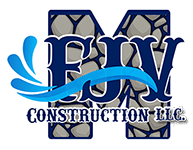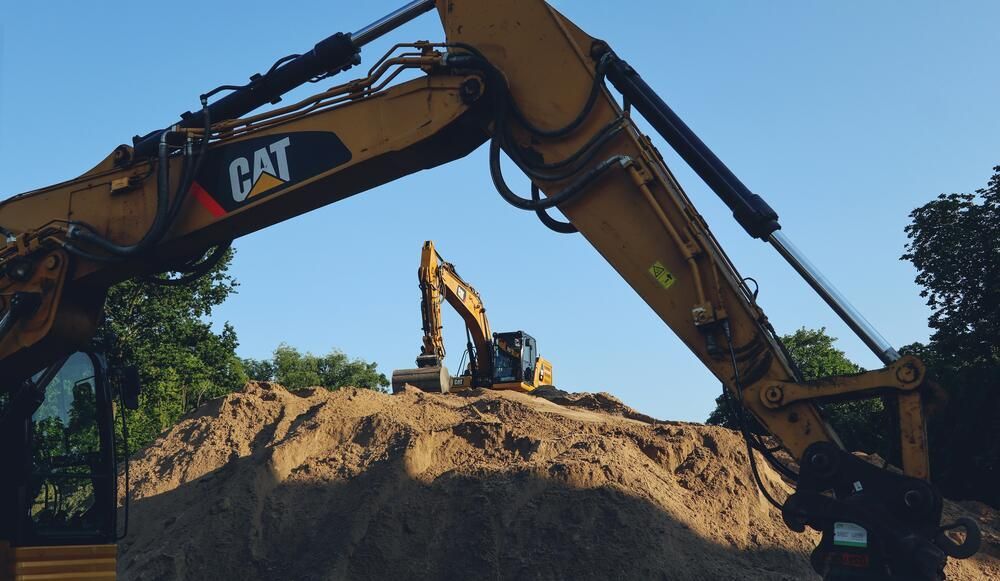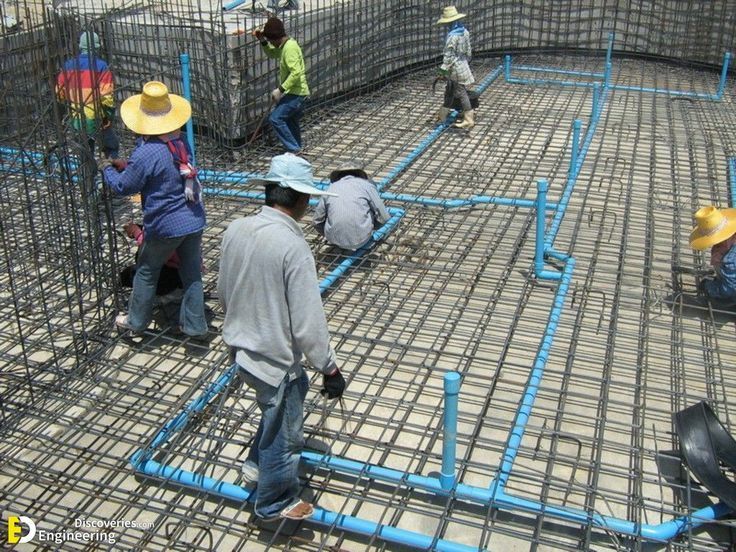Is a Permit Required for Residential Swimming Pool Installation?
Picture a beautiful blue swimming pool in your backyard, perfect for hot summer days. Many homeowners desire this, as it signifies luxury and relaxation. However, a key question arises: Do you need a permit for a residential pool installation? This blog will explore this essential aspect, guiding you through the rules and permits to transform your backyard into a personal oasis.
What’s Inside?
- Key Takeaways
- Types of Residential Pools
- Step-by-Step Guide to Pool Installation
- Why You Need Building Permits for Pool Installation
- Determining the Need for a Permit
- Steps to Obtain a Building Permit for a Residential Pool
- Potential Challenges and Roadblocks When Getting Building Permits
- Consequences of Residential Pool Installation Without a Permit
- Benefits of Hiring Professionals for Pool Installation
- Frequently Asked Questions
- Conclusion
Key Takeaways
✔ Check local regulations and zoning laws to determine if a permit is needed for your residential pool installation.
✔ In-ground pools offer aesthetics and permanence, while above-ground pools are more affordable and portable.
✔ Building permits are crucial for safety, structural integrity, and protecting property value.
✔ Permit requirements depend on pool size, depth, location, and additional features.
✔ To obtain a building permit, research local regulations, prepare documentation, complete the application, pay fees, and await approval.
✔ Installing a pool without a permit can result in fines, potential demolition, insurance issues, disclosure obligations when selling, upgrade ✔ limitations, safety risks, and liability.
Types of Residential Pools
In-Ground Pools
In-ground pools are popular among homeowners looking to create a luxurious and seamlessly integrated outdoor oasis. These pools are typically constructed by excavating the ground and installing a pool structure within the cavity. In-ground pools offer several advantages:
Aesthetic Appeal
In-ground pools are known for their elegant and visually appealing appearance. They can be customized in various shapes and sizes to complement your outdoor space and landscaping.
Permanent Installation
Once installed, in-ground pools become a permanent fixture of your property. They often add significant value to your home and enhance its overall appeal.
Design Flexibility
Homeowners have a wide range of design options, including features like waterfalls, fountains, and intricate tile work. The customization possibilities are nearly endless.
Above-Ground Pools
Above-ground pools offer an alternative to the more traditional in-ground option. These pools are installed above the ground surface and supported by a frame or structure. Above-ground pools are known for their cost-effectiveness and ease of installation. Here are some key advantages:
Affordability
Above-ground pools are generally more budget-friendly than in-ground options. They provide a more accessible way for homeowners to enjoy a pool in their backyard.
Portability
Unlike in-ground pools, above-ground pools are not permanent fixtures. If you decide to move or change your outdoor layout, you can disassemble and relocate them.
Quick Installation
Above-ground pools can often be installed quickly, making them an attractive choice for those who want to start enjoying their pool sooner.
Step-by-Step Guide to Pool Installation
To handle permit requirements effectively, you must understand the stages of pool installation in Bethel, CT. Each step, from concept to completion, is vital in creating your outdoor pool. Here's an overview of the stages:
1. Planning and Design
- Conceptualization: It starts with a vision. You imagine the pool you want, considering size, shape, location, and features like waterfalls, decks, or lighting. This stage involves brainstorming and sketching your ideas.
- Design Development: Collaborate with a professional pool designer or architect after creating your concept. They'll turn your ideas into a detailed design with blueprints and specifications, considering structural engineering, safety features, and aesthetics.
2. Permitting
- Research: Begin by researching the permit requirements in your area. Contact the local building department to understand necessary permits, fees, and regulations. Ensure your design complies with zoning laws.
- Documentation: Collect all necessary documents, including detailed pool plans, site surveys, and equipment specs. These papers are vital for the permit process.
- Application: Fill out the permit application accurately, including project details. Pay the necessary fees and submit the application to the relevant authorities. Be ready for varying approval timelines.
3. Excavation
- Site Preparation: The construction site is prepared for excavation. This involves clearing the area, marking the pool's outline, and ensuring proper drainage.
- Excavation: Heavy machinery digs the pool's foundation according to the design's specifications. This stage sets the physical foundation for your pool.
4. Construction
- Pool Structure: The pool structure, including walls and floors, is constructed according to the design and engineering plans. This typically involves the installation of rebar and the creation of a sturdy framework.
- Plumbing and Electrical Work: Plumbing lines and conduits are installed to support water circulation, filtration, and lighting systems. This stage requires precision to ensure safety and functionality.
5. Installation of Pool Equipment
- Filtration System: The pool's filtration system, including pumps, filters, and skimmers, is installed to maintain water clarity and cleanliness.
- Heating and Circulation: These are integrated at this stage if your pool includes heating elements or water circulation features like jets.
- Safety Features: Safety measures such as pool alarms, safety covers, and fencing may also be installed to comply with regulations and ensure a secure pool environment.
6. Decking and Surroundings
- Deck Construction: The area around the pool is transformed by constructing a pool deck. This provides a comfortable space for lounging and access to the pool.
- Landscaping: Landscaping elements, such as plants, shrubs, and hardscaping features, are added to enhance the aesthetics of your pool area.
7. Finishing Touches
- Water Treatment: The pool is filled with water; water treatment chemicals are added to balance the water chemistry.
- Lighting and Accessories: Pool lighting and additional accessories, such as pool furniture and decorative elements, are installed to enhance the overall ambiance.
8. Inspection and Certification
- Inspection: Local authorities or inspectors may visit the site to ensure the pool complies with safety and building codes. They will check various aspects, including structural integrity, electrical work, and safety features.
- Certification: Once the inspection is successful, you will receive the necessary certification or approval, confirming that your pool installation meets all legal and safety requirements.
Why You Need Building Permits for Pool Installation
What Is a Building Permit?
Let's begin with the basics: what exactly is a building permit? A building permit is an official document issued by local authorities that grants permission for construction or renovation projects. It ensures that the work is carried out in compliance with safety and zoning regulations. Understanding the purpose and legal requirements of building permits is fundamental.
Why Are Building Permits Necessary?
Building permits aren't just paperwork; they serve important functions. Here's why they matter:
Safety
Building permits are essential to ensure the safety of your family and others using the pool. They ensure your pool is constructed following safety guidelines to prevent accidents and injuries.
Structural Integrity
Permits ensure that the pool and its associated structures are built to meet structural integrity standards. This means your pool will be durable and less likely to develop problems.
Property Value
Building permits also play a significant role in protecting your property's value. Compliance with regulations ensures that your pool is an asset rather than a liability. Non-compliance can lead to issues that affect your property's worth.
Determining the Need for a Permit
Getting a building permit for your residential pool installation begins with determining whether you need one. It's a critical first step that can save you from potential legal and financial hassles.
Local Regulations and Zoning Laws
Your local regulations and zoning laws are The primary factors influencing whether you need a permit. These laws can vary significantly from one location to another. Your local building department is the best resource for understanding the specific rules that apply to your area.
Factors Affecting the Permit Requirement
Several factors can influence whether you need a permit for your residential pool installation:
Size and Depth
Larger and deeper pools are more likely to require permits. Often, specific size and depth thresholds trigger the need for a permit.
Pool Location
The location of your pool on your property can also be a determining factor. Setback requirements dictate your pool's proximity to property lines and existing structures.
Additional Features
If your pool installation includes features like hot tubs, spas, water features, or electrical components, additional permits may be necessary.
Steps to Obtain a Building Permit for a Residential Pool
Researching Local Regulations and Requirements
Research local regulations and requirements to determine whether you need a permit for your residential pool installation in Bethel, CT. This involves contacting your local building department and reviewing zoning and land use codes. Each municipality has unique rules, which are key to a successful pool installation.
Preparing the Necessary Documentation
Once you've familiarized yourself with local regulations, it's time to gather the necessary documentation. This typically includes detailed pool plans and blueprints, a site survey showing property lines, and specifications for pool equipment. Having these documents in order is essential for a smooth permitting process.
Completing the Permit Application
With your documentation in hand, you can complete the permit application. This may entail providing detailed information about your pool project, including its size, location, and intended use. Accurate and complete applications expedite the permitting process.
Paying Permit Fees and Associated Costs
Permits come with fees, which can vary depending on your location and the scope of your pool installation in Bethel, CT. Budgeting for these fees and any other associated costs, such as inspection fees, is essential. Being financially prepared is crucial for a hassle-free permitting process.
Waiting for Permit Approval and Processing Times
You must wait for permit approval once you've submitted your permit application and paid the necessary fees. Processing times can vary, so it's advisable to plan your pool installation timeline accordingly. Keep in mind that delays in permit approval can impact your project schedule.
Potential Challenges When Getting Building Permits
Getting a building permit for your residential pool is essential but only sometimes simple. Challenges and obstacles can arise, potentially delaying your project or causing denials. Knowing these potential issues and how to handle them is crucial. Here are common challenges:
Delayed Approvals
Building permit approvals sometimes take longer than you might hope. Delays in the approval process can occur for several reasons, including high demand at the building department, understaffing, or the need for additional information. It's essential to factor in potential delays when planning your pool installation timeline.
Permit Denials
In some cases, your permit application may be denied. Permit denials can happen for various reasons, such as failure to meet zoning requirements, structural concerns, or non-compliance with safety regulations. When a permit is denied, you'll need to address the issues cited by the building department before reapplying, which can add time and costs to your project.
Appealing Permit Decisions
If your permit application is denied, you can appeal the decision. The appeals process can be complex and time-consuming, involving additional paperwork, hearings, and potentially legal fees. While appealing a denial is an option, working closely with the building department to address concerns before reaching the denial stage is generally more efficient.
Navigating Local Regulations and Restrictions
Local regulations and restrictions can vary significantly from one area to another. You may encounter challenges related to zoning laws, environmental considerations, and setback requirements. For instance, your property might have specific drainage or water runoff issues that need to be addressed as part of the permitting process.
Unforeseen Costs
In addition to the costs associated with permit fees, you may encounter unforeseen expenses related to addressing issues raised by the building department. This can include modifying your pool design, adding safety features, or addressing structural concerns. Proper budgeting is essential to ensure your project remains financially viable.
Coordination with Other Projects
If your pool installation is part of a broader home improvement project, coordinating permits and approvals for multiple aspects of your project can be challenging. Ensuring that all necessary permits align and your project complies throughout each phase is crucial.
Communication and Documentation
Clear communication and accurate documentation are key to navigating challenges effectively. Maintain open lines of communication with the building department, contractors, and any other professionals involved in your project. Keep detailed records of all communications and documentation related to your permit application and the construction process.
Consequences of Residential Pool Installation Without a Permit
Installing a pool without the required permits might seem like a shortcut, but it can lead to serious legal, financial, and practical problems. Here's what can go wrong when you skip the permit process:
Legal Implications—Fines and Penalties
One of the most immediate consequences of building without a permit is the possibility of facing fines and penalties imposed by local authorities. These fines can vary depending on your location and the severity of the violation but can add up quickly.
Building departments take permit violations seriously and can issue citations and fines to non-compliant property owners. These financial penalties can become a significant burden and far outweigh the cost of obtaining a permit in the first place.
Potential for Demolition
In extreme cases, local authorities may require demolishing unpermitted structures, including your pool. While this is a worst-case scenario, it's a stark reminder of the importance of adhering to permit requirements. The cost, hassle, and emotional distress associated with demolishing a pool can be overwhelming, making it a situation best avoided altogether by following the proper permitting process.
Impact on Homeowner's Insurance
Building a pool without the necessary permits can also affect your homeowner's insurance. Insurers typically expect homeowners to comply with local building codes and regulations. If your pool is constructed without a permit and an incident occurs, your insurance company may refuse to cover the damage or liability claims related to the unpermitted structure. This can leave you financially exposed without the protection you thought you had.
Disclosure Requirements When Selling Your Property
If you decide to sell your property in the future, you may be legally obligated to disclose the existence of any unpermitted structures, including your pool. Failure to disclose this information can lead to legal disputes with the buyer and potential liability on your part.
Prospective buyers may be wary of purchasing a property with unpermitted additions, which can impact your home's marketability and resale value. In essence, non-compliance with permit requirements can affect your ability to sell your property at its full potential value.
Potential Challenges with Future Upgrades or Modifications
Even if you manage to avoid legal consequences in the short term, unpermitted structures can present challenges when you decide to upgrade or modify your property. Any future building projects may be scrutinized and denied permits due to the existing unpermitted pool. This can limit your ability to improve or expand your property, restricting your options and reducing its long-term appeal.
Safety and Liability Concerns
Beyond the legal and financial aspects, installing a pool without a permit can pose safety and liability concerns. Permits are designed to ensure that structures are built to code, meeting safety standards.
By circumventing the permit process, you risk creating an unsafe environment for your family and guests. Additionally, if an accident occurs in or around your unpermitted pool, you could face significant liability issues, potentially resulting in costly legal battles.
Benefits of Hiring Professionals for Pool Installation
When it comes to residential pool installation in Bethel, CT, the temptation to take the DIY route may be strong. However, enlisting the services of experienced professionals can offer numerous advantages that make the investment worthwhile. Let's delve into the key benefits of hiring professionals for your pool installation project:
Compliance with Regulations
Local building codes and safety regulations can be complex and vary from one area to another. Pool professionals are well-versed in these regulations and ensure your pool installation complies with all requirements. This helps you avoid legal issues and ensures the safety of your pool.
Efficient Project Management
Pool installation involves multiple stages, from planning and excavation to plumbing, electrical work, and landscaping. Professionals have the project management skills to coordinate these tasks efficiently, ensuring that your pool is completed on time and within budget.
Quality Materials and Equipment
Professional pool installers like FJV Construction - Bethel, CT, have access to quality materials and equipment. They can source the best materials for your pool design, ensuring durability and longevity. They also have the necessary tools and equipment to complete the job to a high standard.
Customization and Design
Professional pool installers can work with you to create a custom pool design that suits your preferences and complements your property. They have the creativity and technical skills to bring your vision to life while ensuring it meets safety and functionality standards.
Warranty and Insurance
Reputable pool installation companies typically offer warranties on their work. This provides peace of mind, knowing that any issues that arise post-installation will be addressed. Additionally, professionals carry liability insurance, protecting you from potential liability in case of accidents during construction.
Avoiding Costly Mistakes
Inexperienced DIYers can make costly mistakes during the installation process. These errors may require extensive repairs or even complete reinstallation. Professionals have the knowledge and skills to get it right first, saving you money in the long run.
Frequently Asked Questions
Can I start building my pool before obtaining a building permit?
Building a pool without a permit can have legal and financial consequences. Understanding the process and ensuring you have the necessary permits before starting construction is crucial.
Are there any specific environmental considerations or restrictions related to pool permits?
Some areas may have environmental regulations that affect pool installation in Bethel, CT, such as water usage, drainage, or landscaping rules. Understanding these considerations is essential for permit compliance.
What are the potential consequences of not complying with building permits for pool installation?
Building without the required permits can lead to various legal, financial, and practical problems. Understanding the potential repercussions can help homeowners make informed decisions about their pool installation projects.
Take the Plunge: Contact FJV Construction - Bethel, CT for Your Dream Pool Today!
Achieving the dream of a residential pool hinges on securing the necessary permits and adhering to local regulations. This process ensures safety and compliance and preserves your property's value. While navigating permitting complexities may seem daunting, the long-term benefits of a safe, compliant pool make it worthwhile.
For a seamless pool installation experience, contact
FJV Construction - Bethel, CT. With our expertise and commitment to quality, we can help you navigate permitting, design your dream pool, and bring it to life.
Take the first step toward your ideal pool by contacting us today!
Our Info
Monday to Friday from 7 am to 6 pm
Saturdays from 8 am to 5 pm
We Accept Cash and Checks
LOCATION
We Cover 80 Miles around Bethel,
Danbury, and Brookfield
Bethel, Connecticut 06801
Danbury, Connecticut 06810
Brookfield, Connecticut 06804
Navigation
Copyright FJV Construction, All Rights Reserved



